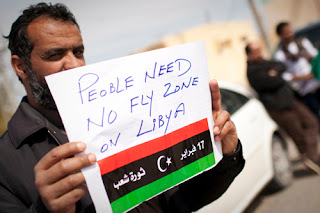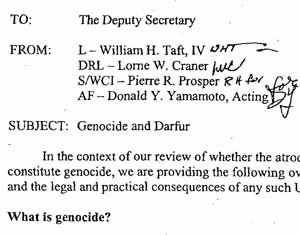Rwanda
Obama in South Africa: Washington tells Pretoria how to ‘play the game’ in Africa

Protesters greet Obama, June 28, 2013.
Washington in Africa, 2012: Who will Obama ‘whack’ next?

Graphic from the Economist.
By Patrick Bond
[Address to the Muslim Youth Movement 40th Anniversary Conference, University of KwaZulu-Natal, Durban, September 30, 2012. Posted at Links International Journal of Socialist Renewal with the author's permission.]
At a time when popular revolutions are sweeping the globe, the United States should be strengthening, not weakening, basic rules of law and principles of justice enumerated in the Universal Declaration of Human Rights. But instead of making the world safer, America’s violation of international human rights abets our enemies and alienates our friends. – Former US president Jimmy Carter, 25 June 2012, New York Times
Libya intervention: A legitimate and necessary debate from an anti-imperialist perspective

"The Treaty of Brest-Litovsk was indeed a compromise with the imperialists,

Skulls of victims of one of the massacres during the 1994 Rwandan genocide are displayed at the Genocid
How the Rwandan tragedy was created
By Zanny Begg
Green Left Weekly -- The death toll in Rwanda has shocked people around the world. Rows upon rows of dead bodies have filled TV screens, newspapers and magazines since the carnage began in April. It has been estimated that 500,000 people have been killed. The spread of cholera and dysentery in the refugee camps is still adding hundreds to the death toll each day. Rwanda, previously one of the most densely populated countries in Africa, is now a mass grave. Due to migration and murder, its population has declined from 8 million to 5 million, a drop comparable to that in the Irish famine of the 1840s.
Genocide in Rwanda: The role of the West
By David Dorward
The media have reduced the Rwanda atrocities to some
inexplicable and primeval "tribal" conflict, obscuring the manipulation
of ethnic politics by a ruthless Western-backed military dictatorship.
The recent horror in Rwanda and the prospects for renewed ethnic clashes
in Burundi are part of a saga of violence stretching back over 35
years. There is nothing inevitable about these atrocities. They were
predictable and avoidable — but only if there had been the political
will. As in Bosnia-Hercegovina, ethnic tensions have been fanned by
politicians who have manipulated "history" to their own ends.
By Theogene Rudasingwe
Rwanda is distinctive among the countries of Africa for the
small size of its territory and the high density of its population (7.5
million people, 285 inhabitants per square kilometre).
It is inhabited by a people called Banyarwanda. The Banyarwanda comprise of three groups: the Hutu, Twa and Tutsi which are commonly, but misleadingly, called ethnic groups. These groups are not ethnic groups in any meaningful sense. The three groups are one people with a common ancestry. They share the same language and culture. Whereas tribal societies are usually divided by geographical boundaries, the three groups have lived together on the same hills throughout the country from time immemorial.
Congo: Western intervention behind bloodbath
By Tony Iltis
November 7, 2008 -- Despite Western media and politicians having largely ignored a decade of genocidal warfare that has cost 6 million lives, the recent upsurge in fighting in the east of the Democratic Republic of the Congo (DRC) has drawn not only media attention, but visits to the region by the British and French foreign ministers and United Nations Secretary-General Ban Ki-Moon.The current round of fighting in North Kivu province, which began on October 26 with an offensive by the Rwandan-backed rebel forces of General Laurent Nkunda, is indeed a humanitarian catastrophe — 200,000 people have been displaced, many not for the first time.

